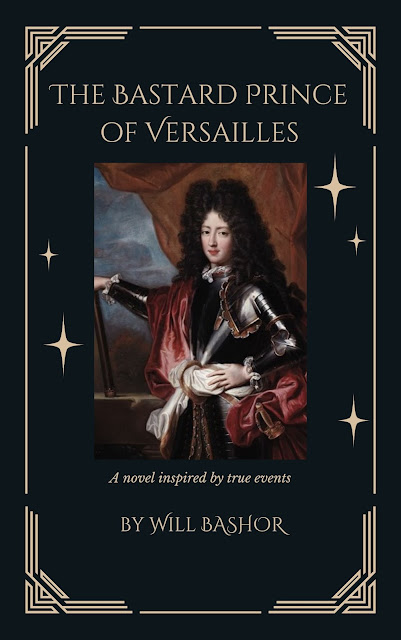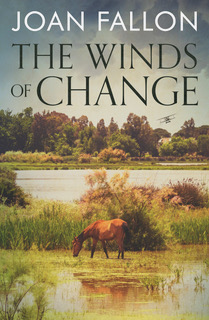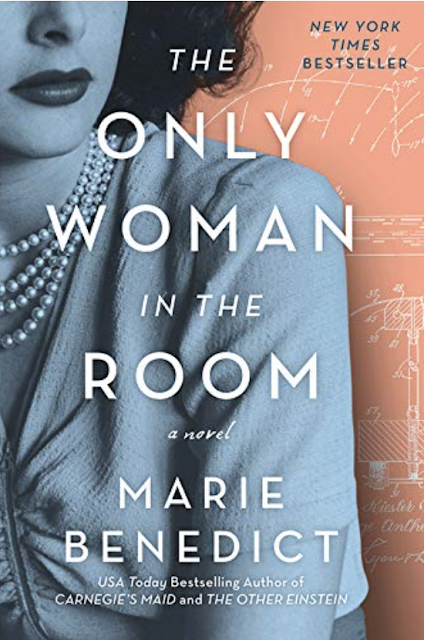By Malve von Hassell
Tuesday 23 April 2024
THE FALCONER'S APPRENTICE is a story of adventure and intrigue set in the intense social and political unrest of the Holy Roman Empire in the thirteenth century.
By Malve von Hassell
Monday 22 April 2024
Book Review - The Bastard Prince of Versailles: A Novel Inspired by True Events by Will Bashor
By Will Bashor
Count Louis of Vermandois and Admiral of France's scandalous life is vividly portrayed in Will Bashor's book, The Bastard of Versailles (The King's Secret Children Book).
With one eye on the historical controversy of this era and the other on what makes an enthralling read, Bashor has presented his readers with an unashamedly impressive novel. Add to this the historical detail and the author’s skill in developing compelling characters ensures the reader stays engaged throughout. The author's mastery of word-building, impeccable prose, and compelling storytelling illuminated the essence of this era and exposed the shadows lurking within The Palace of Versailles.
The Palace of Versailles may well be glorious to behold, but there are cracks in the plaster, a metaphor for the duplicity and vulgarity of those who tried to bask in the warmth of the Sun King. While the sovereign watched closely, the nobility may have appeared to lose their ability to plot against him, but that didn't prevent them from plotting against one another. This nest, filled with vipers, is a dangerous place for a young naive child. The dangers in court are ever-present and very real. It does not take long before the young Louis finds himself tangled in a web of deceit. At times this novel is harrowing in its depiction of Louis, for he is preyed upon by sexual predators, be they both female and male, and sometimes with the consent of the king himself. Although considered a man in this era, as the author points out in the notes at the end of the book, Louis is ill-equipped to defend himself against these powerful and somewhat influential men.
Louis lives in the shadow of his brother, the Dauphin. His mother, Louise de La Vallière, is seemingly indifferent to both himself and his sister, choosing a life devoted to God rather than her children, while his father is something of an enigma to the young boy. Louis wants what all children want, love. But as the recognised but illegitimate son of a king, Louis also just wants to be seen in a favourable light. His downfall is marked by his innocence, for there are those who are entertained by the notion of destroying this young boy’s character. Louis was a character that was very difficult not to like. He is a young boy with a future ahead of him, and so it is especially tragic that he is put into a position where he is unable to defend himself. When he tells his father what has been happening to him, instead of compassion he is met with hostility, shame and brutality. And yet, through it all, his one thought is to make his father proud, which was incredibly moving. Louis struggles greatly with who he is and what he has seen.
Although homosexuality (Italian Vice as it was known during this era) was illegal and many men found themself burnt at the stake, Louis is continuously exposed to it. His uncle, Philippe I, Duke of Orléans and his uncle’s lover the Chevalier de Lorraine are hugely influential and are seemingly untouchable. The depiction of Chevalier de Lorraine made my skin crawl, he is not only a morally dubious character, but he is also a vile and cruel man who exploits Louis' vulnerability, and although he is exiled when his seduction of the boy is exposed, he still manages to worm his way back into court. I thought the depiction of Chevalier de Lorraine was wonderfully drawn, he really is the villain in this tale.
Louis does struggle with his sexuality throughout this story, and this is probably why he is so easily preyed upon. Marcel Joubert is at first Louis' whipping boy, but as the story progresses they become fast friends, and Louis always keeps Marcel close. Although Marcel is a fictional character, I thought he was a character that helped to bring balance to the young Louis’ life. Their growing love for each other is built on a foundation of respect and friendship and he is the only true friend that Louis ever has.
Madame Elizabeth Charlotte, Duchess of Orléans is a character worthy of note as she brought a great deal of joy and amusement to this story. She is a very loving woman with an attitude of getting on with it, despite what life has thrown at her. She is married to the king’s brother, and they seem to rub along together, even though he prefers the company of men. She is a kind and thoughtful woman who always has Louis’ best interest at heart. I thought Elizabeth’s depiction was fabulous drawn and she was a character I really enjoyed reading about.
The author has included illustrations, including paintings from the time and maps throughout this novel. This idea was truly ingenious as it breathed life into the characters. The incorporation of these images, although uncommon in historical fiction, certainly added depth to the story.
The Bastard of Versailles (The King's Secret Children Book) by Will Bashor is a highly recommended read for several reasons. This tale introduces a diverse and unforgettable ensemble, exploring the shadowy aspects of The Sun King's leadership while chronicling the challenges faced by a determined young boy. It is a novel that will haunt you long after you have turned the last page.
Sunday 21 April 2024
Will she pay for her husband's mistakes, or will she manage to escape from a terrible fate?
By Anne O'Brien
Publisher: Orion
Page Length: 445 Pages
Genre: Historical Fiction
ALL'S FAIR IN LOVE AND WAR...
The Welsh Marches, 1301
Strong-willed heiress Johane de Geneville is married to Roger Mortimer, Earl of March, at just fifteen years old.
Soon Johane finds herself swept up in a world of treacherous court politics and dangerous secrets as her husband deposes Edward II and rules England alongside Queen Isabella.
Yet when Roger is accused of treason, she is robbed of her freedom and must survive catastrophic events in her fight for justice - with her life, and her children's, hanging in the balance...
Will she pay for her husband's mistakes, or will she manage to escape from a terrible fate?
Excerpt
Saturday 20 April 2024
Janice Hadlow's The Other Bennet Sister is a life-affirming tale of a young woman finding her place in the world. This is Mary Bennet's story .
By Janice Hadlow
 |
| Photo Credit: Martin Davidson |
This fast moving historical novel is a story of love, politics, class prejudice, intrigue and betrayal in the year leading up to the Spanish Civil War.
Publisher: Scott Publishing
Page Length: 322 Pages
Genre: Historical Fiction 20th century
The Winds of Change
HERE!
Friday 19 April 2024
A powerful book based on the incredible true story of the glamour icon and scientist, The Only Woman in the Room is a masterpiece that celebrates the many women in science that history has overlooked.
By Marie Benedict
Book Review - Concealed by the Tide by Zara West
By Zara West
Publisher: Tidal Waters Press
Page Length: 281 Pages
Genre: Romantic Suspense
Seastroke Energy's groundbreaking tidal turbine rested on the seafloor of the Minas Basin. This ingenious billion-dollar masterpiece has already caught the attention of the local community, but not in a good way. Despite the huge advantages that this turbine could bring, many were concerned about the effect it would have on the local lobster population. Summer Avery, EcoGreen Action’s star activist has been sent to Nova Scotia to organise a peaceful campaign against the turbine. But someone had got there before her, and their intentions were anything but peaceful.
Gil Moses, a world-renowned fish expert, has been hired by SeaStroke Energy on the pretext of studying the lobster populations at the site before the company complete the installation. But that is not the real reason he is there. He has been hired by SeaStroke to find out who had tried to sabotage their turbine. He was, however, unprepared for the strong opposition he would encounter or the powerful attraction he would have for the woman who opposed his work at SeaStroke Energy.
Prepare to be enthralled by Zara West's Concealed by the Tide, a story that will leave you yearning for more.
The unashamedly brilliant narrative captures the readers’ attention from the first sentence and continues to hold it hostage until the very last full stop. The cliffhanger tension, the non-stop excitement, and the forbidden romance make this book a real page-turner. This is a novel filled with memorable characters, who are not always what they seem to be.
The romance between Gil and Summer is portrayed realistically, with a swoon-worthy quality that will melt even the toughest critic's heart. The novel fulfils all expectations and is a must-read for those who appreciate romantic suspense.
Summer is passionate about her job, for she knows only too well the power that these big multinational corporations have. However, she is not your average environmentalist. She is hoping that her work here will give her the directorship she wants in the company. Summer also wants to make amends with her dying father – while he had spent her childhood fighting the drilling company that had polluted the water by fracking on the neighbour’s farm, she had grown up and worked on an ad campaign to clean up the image of a drilling company. The betrayal was absolute, but Summer believed if she could do this one thing, stop Seastroke Energy's plans, then her father may just forgive her. Summer is a character that a reader can really connect with. She is passionate about her job, and people are drawn to her. She is a very resilient woman who is not easily swayed by arguments, nor does she back down from intimidation. When she meets Gil, she is instantly drawn to him, and although she tries her hardest to stay away from him, the two of them keep crossing paths. As the story progresses the reader becomes even more invested in Summer’s story. She is a character that is simply impossible not to like.
Gil, the handsome marine biologist has, like Summer, a complicated past. He has just gone through a divorce and a custody battle. The job opportunity at Seastroke Energy comes at just the right moment. It means he can leave his well-paid position at MIT and return to doing what he is passionate about – research. It also means he could start a new life in Nova Scotia with his daughter. The one thing he was not looking for was love. Dolores had put him off women for life. He was definitely not going to fall head over heels in love with the enemy, and that was what Summer was. For all he knew, she could have had something to do with the sabotage of the turbine. Gil is the perfect romantic lead, and despite his working for Seastroke Energy, he is a good man with strong principles. What makes him slightly unusual is that he is a character who is willing to learn, especially when it comes to his autistic daughter. He knows he can parent her better, he just does not know how. As the story progresses Gil learns new skills and begins to really bond with his daughter.
The depiction of Lissie was expertly illustrated. Lissie brings both joy and chaos to the story. The combination of her autism diagnosis, sensory difficulties, communication struggles, and lack of empathy from her mother creates a distressing narrative. Her stimming and aggressive outbursts are challenging, but Gil is determined that his daughter will never see the inside of an institution. He is doing his best, but he realises his best is not quite enough when he meets his new would-be housekeeper, Mrs Victoria Eagles. Despite her odour and penchant for keeping secrets, Victoria quickly bonds with Lissie, demonstrating to Gil the potential for a meaningful relationship with his daughter. As the story unfolds, Gil's comprehension of his daughter’s abilities grows, and he acknowledges that Lissie is exceptionally bright. And with Mrs Eagle’s encouragement, he learns not to disturb Lissie’s circles!
This novel features multiple antagonists, some of whom are not what they appear to be. Despite Summer's efforts to organize peaceful protests, some community members still turn to violence. This leads to devastating consequences, none of which Summer could ever have predicted. The antagonists frequently cause Summer to doubt her relationship with Gil, resulting in her unknowingly getting caught in their deceitful scheme. The depiction of the antagonists is spine-chillingly clear and wonderfully done.
The plot is really captivating and has a fast-paced vibe. Numerous obstacles, such as Gil’s job at Seastroke Energy and Summer’s campaign against their turbine, impeded the couple’s relationship. Nonetheless, this drama served as a driving force for the story.
Concealed by the Tide by Zara West is a mesmerising read. I could have very easily read another thousand pages, and my attention would not have wavered. I am really looking forward to reading the next book in the series.
You can pick up your copy HERE!
Zara West
Born in Williamsburg, Brooklyn, Zara spends winters in New York where the streets hum with life, summers in the Maritimes where the sea can be cruel, and the rest of the year anywhere inspiration for tales of adventure, mystery, and romance are plentiful. An accomplished artist by training and passion, she brings a love of art to every book she writes. When not marooned on an island or chasing after Greek shepherds, Zara tends her organic herb garden, collects hats and cats, and whips up ethnic dishes for friends and family.
A professional artist, Zara's handcrafted clothing and creations have been sold in Bloomingdales, Altman’s, Putumayo, the Museum of American Folk Art and more. She has done ethnographic fieldwork among the shepherds of Greece and Italy, gone head to head with a flock of 400 sheep and 30 milk goats in upstate New York, and in her spare time, written award- winning stories, books and magazine articles.
A member of Romance Writers of America, From the Heart, Kiss of Death, Southern Tier Authors of Romance, and Hearts Through History, Zara’s short stories have appeared in several anthologies, and she has received awards from Women on Writing, Stone Thread Publishing, Tryst Literary Magazine, and Winning Writers. Her novels have won and placed in numerous contests.
Contest Wins
2013 Mslexia Novel Competition - Finalist Take the World
2015 Touch of Love - 2nd place Historical House Carpenter
2015 Heart Through History - 1st place American Historical Lilly’s War
2015 Fab2 - 5th place Inspirational House Carpenter
2016 Pages from the Heart - 1st place Romantic Suspense Close to the Skin
2017 Emma Merritt - 3rd place Romantic Suspense In With the Tide
2018 InD’Tale Magazine - 2nd place Rone Award for Romantic Suspense Close to the Skin 2018 I Heart Indie - 1st place Suspense Close to the Skin
Connect with Zara:
BookBub
Facebook Fan Page
Goodreads
Tumblr
YouTube Channel

























